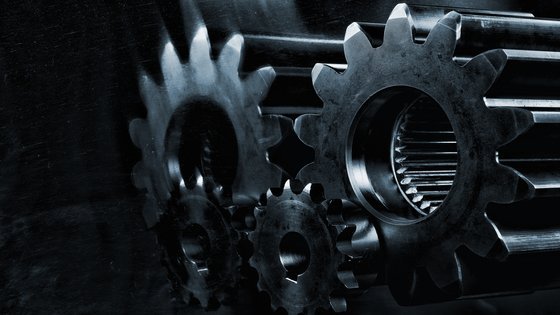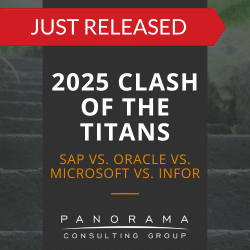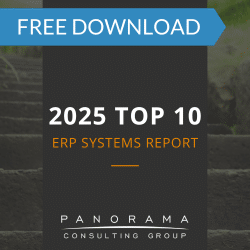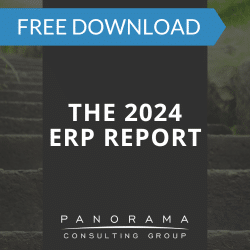You know the story. He uses logic in every situation and tries to control every possible circumstance. She’s personal and only cares about living in the moment trusting that everything will work. They meet and are instantly repelled only to find that opposites attract. Slowly they compromise and live happily ever after. Is this the latest summer romance movie? No, it’s the story of ERP software and Lean Manufacturing.
For years, ERP software and Lean Manufacturing were polar opposites. ERP is big and robust. Analyzing sales trends to forecast inventory needs. Materials are ordered and “pushed” through production. Lean Manufacturing is individualized and responsive. The past and future are less important. What matters most is the present. Materials are “pulled” through the system as needed. Inventory levels are kept to a minimum with “just in time” ordering being key.
ERP and Manufacturing: The Start
Early on companies saw the benefits of both systems but thought they were too dissimilar to work together. As a result, ERP software was used for tracking customer and supplier relationships. Lean Manufacturing handled all production. The rule of thumb was everything in the plant was Lean Manufacturing and everything outside the plant was ERP.
While on some levels this worked it caused several challenges. Namely running two diverse systems at the same time isn’t conducive to productivity. It also fails to capture the strategic benefits of both systems. Recently more companies have discovered that ERP and Lean Manufacturing can be an ideal marriage.
For example, KanBan has visual signals to resupply inventory. This works well with a single manufacturing facility. ERP turns visual signals into electronic ones. This means notifications and response times are faster. Additionally, multiple manufacturing facilities and even suppliers can now be linked together into one KanBan loop.
SAP vs. Oracle Case Study
SAP and Oracle both invest heavily in cloud technology. However, our client was skeptical about cloud scalability and unsure if the products were mature and proven.
Inventory Control and ERP
Another benefit is controlling inventory. A mantra of Lean Manufacturing is ‘just in time inventory” or having just enough to complete the production demands. Excess inventory leads to wasted resources. ERP can analyze current inventory levels compared to current sales demands. This creates a more refined “JIT” inventory process.
ERP can also analyze the productivity of individual workstations. Lean Manufacturing thrives in make to order environments. However, this type of production often requires multiple fixtures and production changes during the week or even the day. Projected change over times rarely match the actual times. Additionally, producing custom products creates varied production flow rates. An ERP system can compare these data points allowing you to identify and correct inefficiencies.
Scrap is the bane of all manufacturing. It directly affects product margins. An ERP can track scrap rates. As many businesses know – “What can be measured can be controlled.” A reduction of scrap leads to an increase in profit.
ERP and Manufacturing: A Perfect Match
When businesses unite Lean Manufacturing and ERP everyone lives happily ever after. However, it will require customization of your ERP software to see the most significant results. Any slight additional cost will be recouped through a more efficient productive manufacturing facility. When choosing an ERP vendor be sure they have the ability to fully understand your operation. An ERP vendor that knows your unique challenges will ensure you have a system that harmonizes all aspects of your business. As the world’s leading independent ERP consultant, Panorama Consulting Solutions has the expertise. Marrying ERP and Lean Manufacturing isn’t some fairy tale. Contact Panorama Consulting Solutions to create a match made in heaven.













